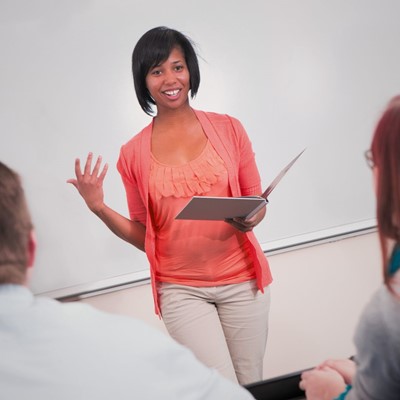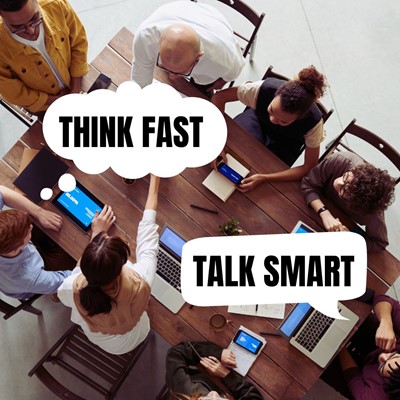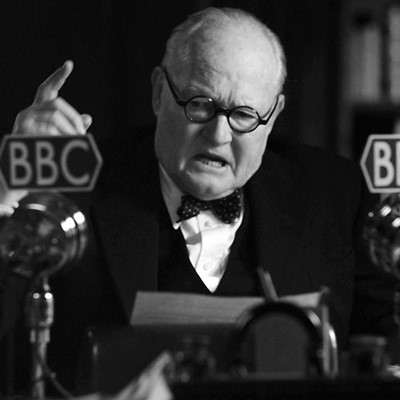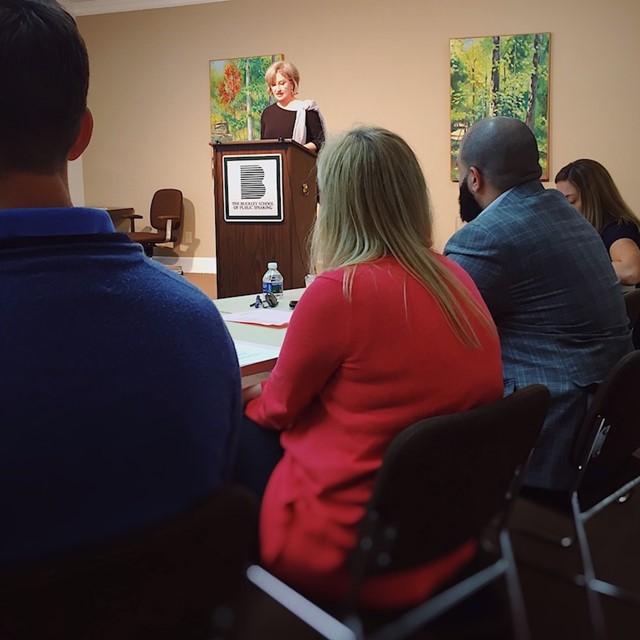
Above, a debate at our Executive Seminar is about to begin. In the school's 35 years, we've had hundreds of debates on a wide range of topics from legalizing marijuana to climate change, college sports, and the virtues of big box stores.
"My frustration in watching worthy folk make blithering idiots of themselves in public moved me to found The Buckley School of Public Speaking."
– Reid Buckley
In 1988, Reid Buckley opened The Buckley School of Public Speaking, with a belief that fun and a bit of friendly debating could produce big gains for speakers. Thirty-five years later, we're still at it—and still seeing our students discover their strengths and find joy in speaking through the same practice.
The same year he started the Executive Seminar, Reid also published his first book on public speaking. In Speaking in Public, he wrote at length about the benefits of participating in debates and wondered why more companies and schools don't include debate teams among their activities and training.
He also dreamed of a world in which debate was part of popular entertainment and if you've attended our Executive Seminar, you probably don't thinks this sounds as far-fetched as other might.
In fact, Reid seems to anticipate the rise of championship corn hole on ESPN when he writes:
Why, I wonder, don't the networks get smart and field cadres of professional gladiators [debaters] during the dead hours when, so desperate they are for programming, they run over-the-hill superjocks in tiddlywinks tourneys.
Below, an excerpt from Speaking in Public on how debate can be a valuable training program for anyone.
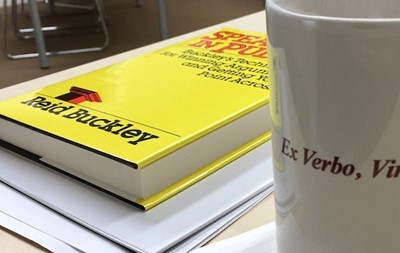 Reid Buckley's first book on public speaking, published in 1988 - the same year he opened The Buckley School.
Reid Buckley's first book on public speaking, published in 1988 - the same year he opened The Buckley School.
From Chapter 4: Sharpening the Wits
Debate sharpens wits, tests logic, tries opinions in the hot forge of argumentation, and better than any other forensic exercise builds composure.
What astonishes in this super high-tech civilization that depends more and more on the flow of accurate information and the ability of people to communicate is the little attention that is given to debate in more high schools and colleges.
Like millions of other Americans, I love watching sports. A duel in tennis or the matching of brawn and wit that can develop in professional football games excites me. What are the elements that make it so, we may ask?
The quick thinking in the heat of action and what sports announcers call "momentum." The psychological imposition of will by one player or team over another player or team. We all understand this. How come in our intellectual preparation we neglect that contest?
Millions of Americans enjoy TV game shows in which both quick-wittedness and aplomb, the key ingredients in debate, are in one way or another featured. We enjoy smacking our lips over the loot; but we admire also the composure and lively intelligence of the winners. Why not so on a higher plane? Debates need not all be "heavy," remember.
Why have not corporations and professional associations at the least promoted in-house debate clubs, which would teach their members and executives so much of value to them? I am amazed.
There do exist debating societies here and there across the country. If there is none in your community, organize one.
Learn more:
Check out one of our favorite organizations, Intelligence Squared, where you can watch entertaining debates in a lively format that determines the "winner" by polling the audience for their opinions before and after.
Watch Malcolm X bring his many skills and gifts as a speaker to the Oxford Union Debate on December 6, 1964 here.
Our resident youth debate expert, Buckley coach Jana Daley, offers up her public speaking tips gleaned from work as a debate team coach here.

